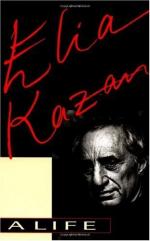|
This section contains 390 words (approx. 2 pages at 300 words per page) |

|
Gentle by comparison with the thrusting mainstream of current cinema, Elia Kazan's film of The Last Tycoon evokes a romanticism which persists and glows against the commercially orientated ethos of Hollywood in the 1930s. The spare and sensitive adaptation by Harold Pinter is respectful to the source material, the final and unfinished novel of Scott Fitzgerald—so respectful, indeed, as to eschew the profusion of indications left in the author's notes about the resolution of the story: the film is curtailed, only slightly rounded off, and therefore like what exists of the novel it places its main emphasis upon Monroe Stahr's vain efforts to recreate his former love life, while the fascinating social background and its relevance to Stahr can be savoured only as a kind of incidental factor instead of the more consequential element that Fitzgerald would presumably have developed had he lived to finish the work...
|
This section contains 390 words (approx. 2 pages at 300 words per page) |

|


